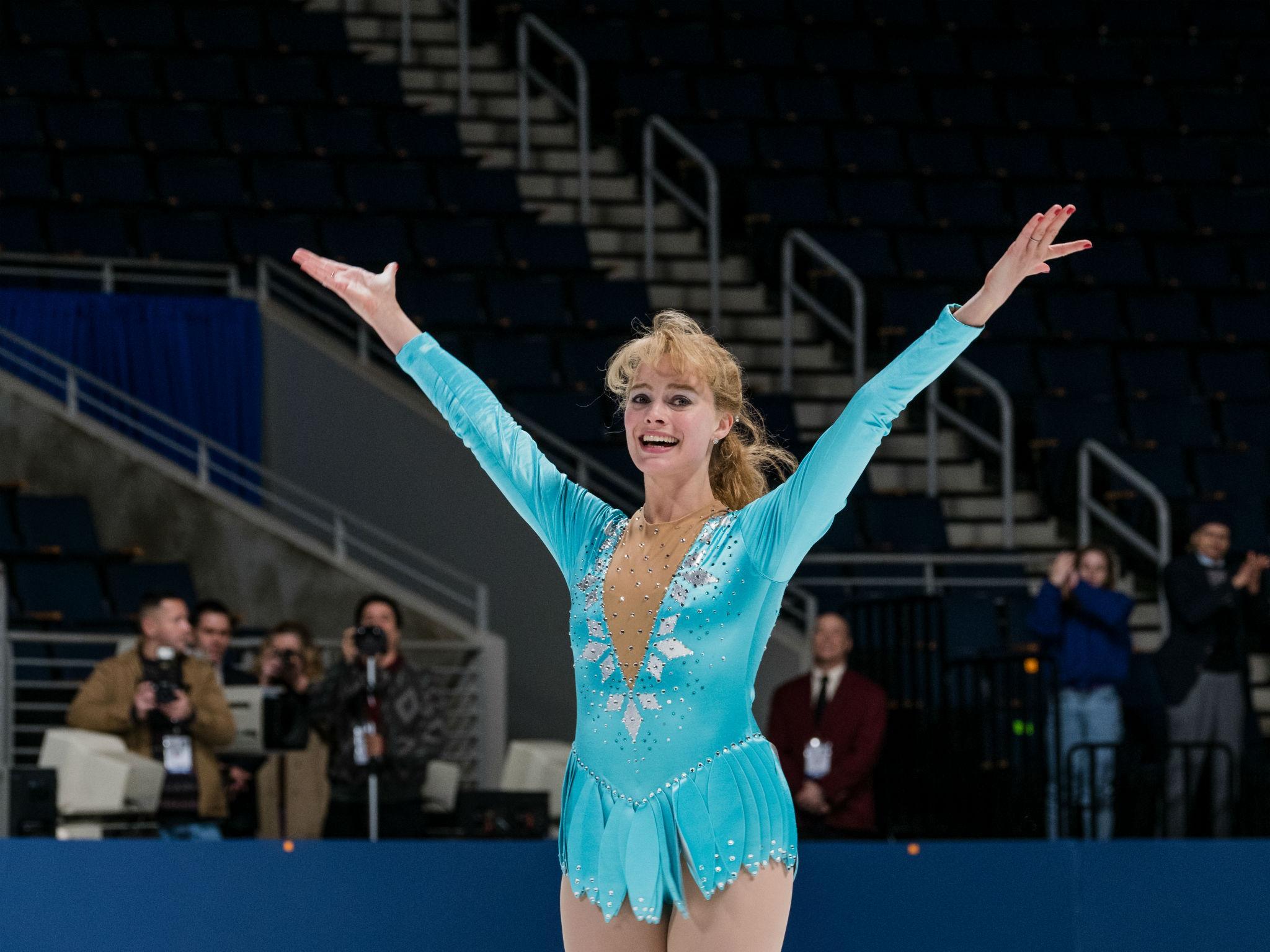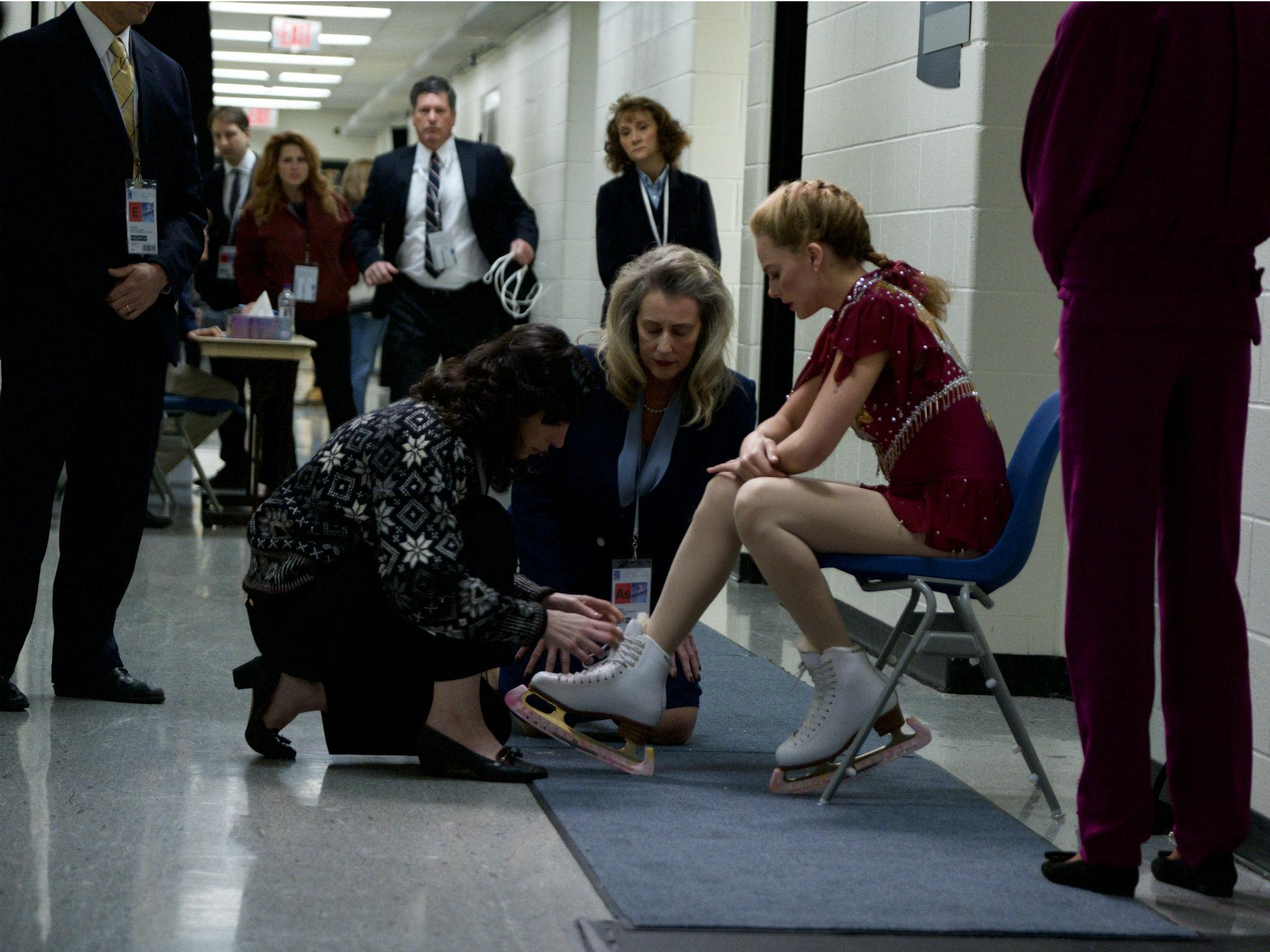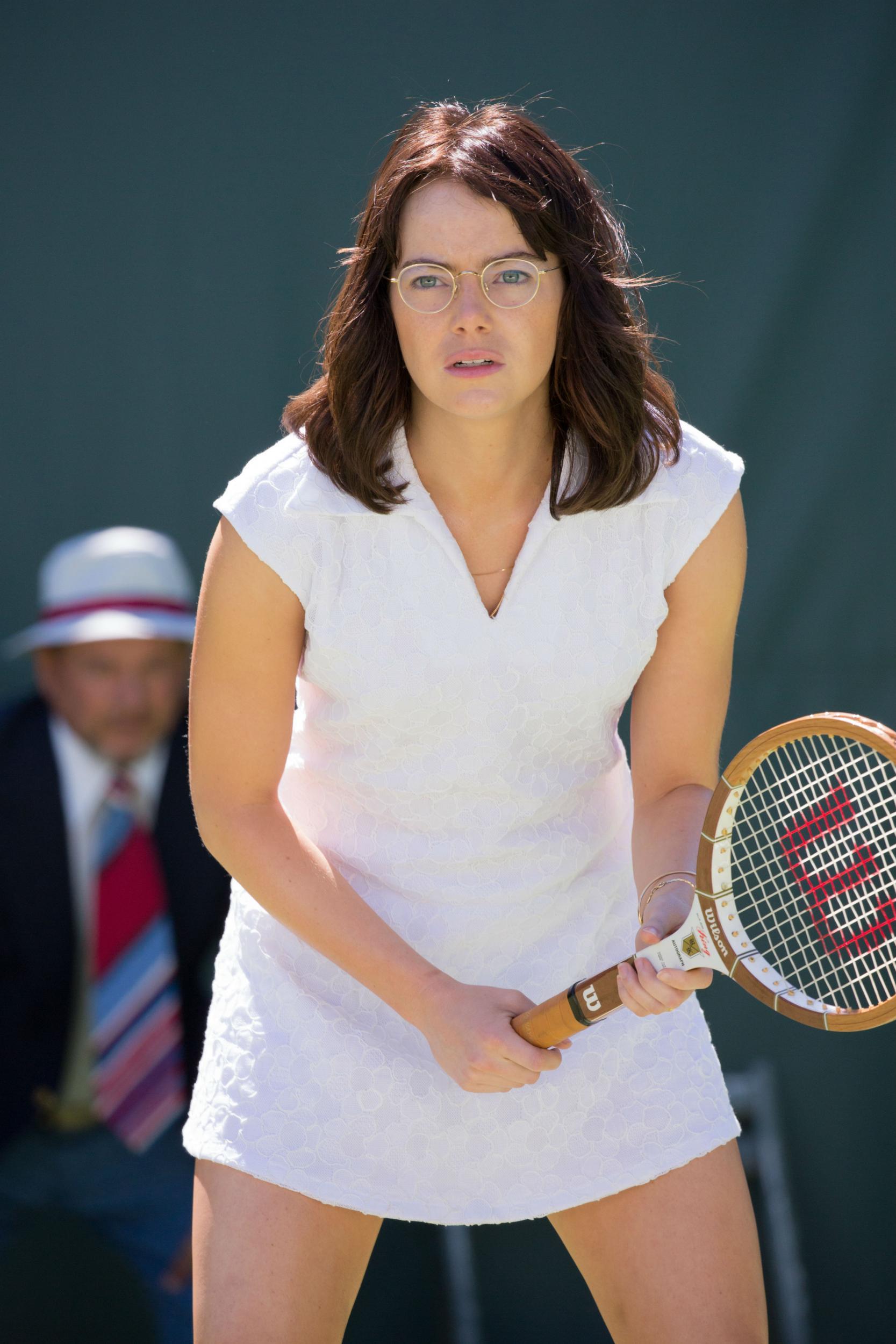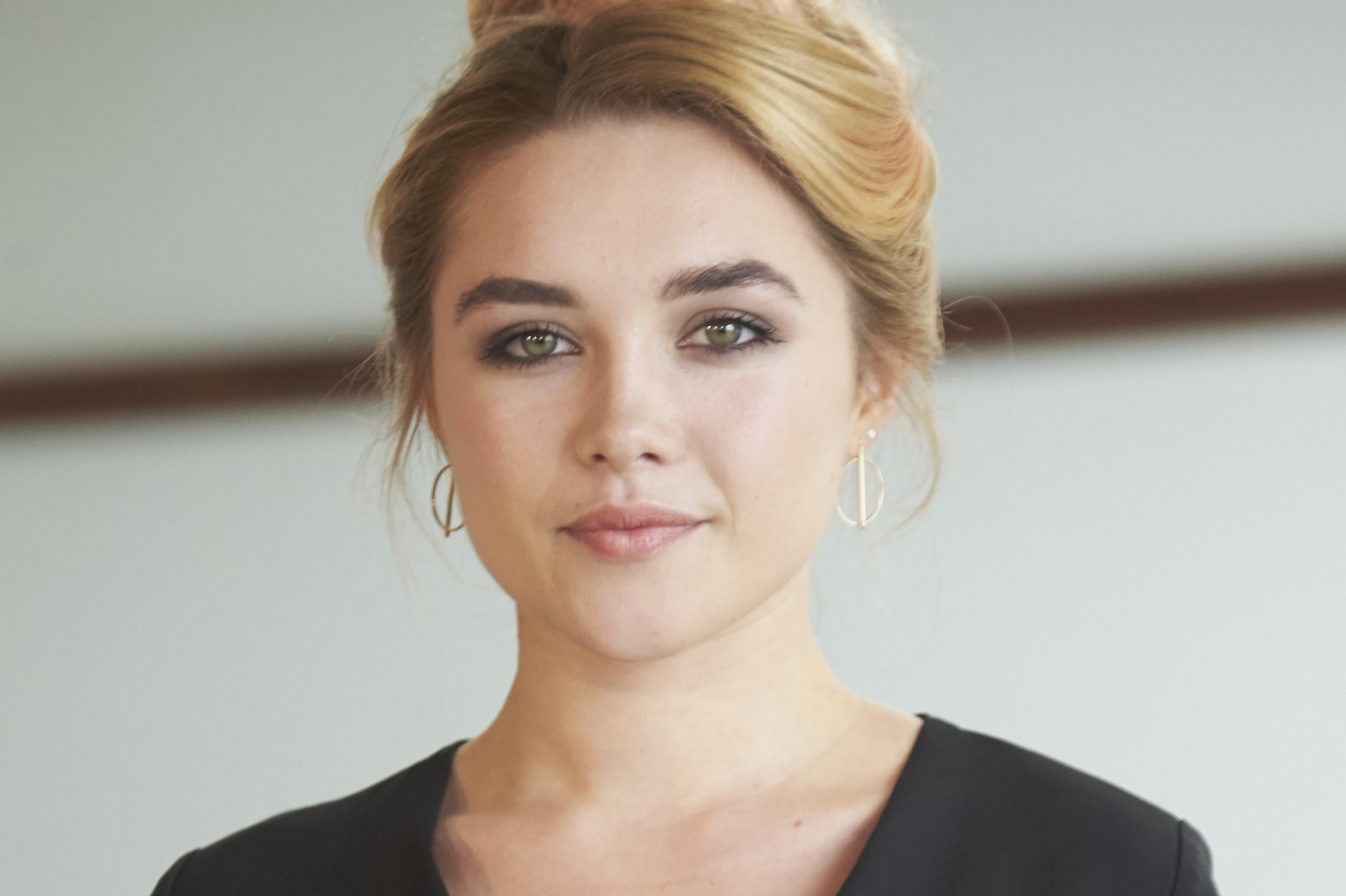I, Tonya: The rise of the female-led sports biopic
True stories of women athletes have been severely lacking from the cinematic landscape but – with the releases of 'I, Tonya', 'Battle of the Sexes' and the forthcoming wrestling film 'Fighting with My Family' starring Florence Pugh – things are changing

At one point in just-released sports biopic I, Tonya, Margot Robbie, wholly transformed into “white-trash” Nineties figure skater Tonya Harding, says with venom to a sneering judging panel: “Suck my dick.”
As with many other moments of the film, as the audience you are simultaneously appalled and delighted at this one woman’s bold refusal to conform to what the sport as an institution – and society via the media – told her she should be.
The Bafta- and Oscar-nominated performance from Robbie in this razor-sharp, blacker-than-coal film about one of the most notorious sports scandals of all time comes hot on the heels of a career-pivotal role for Emma Stone as tennis star Billie Jean King during the lead-up to an infamous 1973 stunt match between her and self-declared “chauvinist pig” Bobby Riggs, played hilariously by Steve Carell, in late 2017 movie Battle of the Sexes.
Also highly anticipated is British Independent Film Award-winning and Bafta-nominated Florence Pugh playing professional wrestler Saraya-Jade “Paige” Bevis in a comedy drama about the WWE star’s life, alongside Dwayne “The Rock” Johnson as himself, and Vince Vaughn as Jake “The Snake” Roberts, in Fighting with My Family, written and directed by Stephen Merchant.
In the past, biographical sports dramas have been plentiful but mostly male-centred, and more often than not about boxing (such Martin Scorsese’s Raging Bull with Robert De Niro, Michael Mann’s Ali with Will Smith, and David O Russell’s The Fighter starring Mark Wahlberg and Christian Bale), baseball (in the vein of Moneyball or 42) or American football (such as John Lee Hancock’s The Blind Side).
Fictional tales of female sportswomen have emerged in the form of Kathryn Bigelow’s representation of a female surfer in Nineties classic Point Break, Penny Marshall’s fictionalised account of a real-life all-female baseball league A League of Their Own, Gurinder Chadha’s early Noughties hit following a teenage girl of Indian descent’s obsession with football in Bend It Like Beckham, and Darren Aronofsky’s dark psychological thriller exploring the physical and mental pressure suffered by a professional ballerina in Black Swan. But until now true stories of women athletes have been severely lacking from the cinematic landscape.

The emergence of what seems to be a new subgenre in film of the female-led sports biopic is exciting for many reasons. There’s no doubt that, throughout history, female athletes and female-centred competitions have been overshadowed by their male equivalents, evident in the disparate levels of coverage each garner – from football to athletics to tennis – to the casual sexism expressed in that coverage and more widely.
Our relationship with female sports stars in the media has always been a conflicted one – the usual guise of objectification other female celebrities are forced under is necessarily upset by women who are strong, not thin, determined not submissive, and their physiques only incidentally in front of cameras and splashed across newspaper pages where their primary goal is to compete and to win in their chosen pursuit.
But as the tides turn, most visibly in Hollywood but more broadly as well, on what standards we ask women in the public eye to set themselves by, women in sports are increasingly being not only recognised in mainstream society for their achievements, but also revered and celebrated for offering a new kind of role model for young people to aspire to, with the most recent examples being the increasing profile of women’s football and Olympic competition coverage putting our female athletes on a par with their male colleagues.

Watch Apple TV+ free for 7 day
New subscribers only. £8.99/mo. after free trial. Plan auto-renews until cancelled.
ADVERTISEMENT. If you sign up to this service we will earn commission. This revenue helps to fund journalism across The Independent.

Watch Apple TV+ free for 7 day
New subscribers only. £8.99/mo. after free trial. Plan auto-renews until cancelled.
ADVERTISEMENT. If you sign up to this service we will earn commission. This revenue helps to fund journalism across The Independent.
In these emerging sports movies, the athleticism and physicality of each performance is put front and centre, moving away from the traditional pressure we see for female characters to be over-glamorised. Like Robbie’s rigorous preparation to play ice-skater Tonya Harding, which director Craig Gillespie said blew him away on the first day of shooting, Stone also carefully studied Billie Jean King’s gait and mannerisms while also training in the sport and with a movement coach to most closely bring to screen an incarnation of the sports star.

What these sport-focused biopics also unexpectedly allow is a vehicle to explore contemporary issues in society, as Robbie explained to me of I, Tonya, which delves into the different versions of the truth on the media-hyped scandal Harding found herself at the centre of, as well as the emotional and physical abuse she suffered: “Anyone like me born after 1990 didn’t know this story, and I still found it so fascinating because it touches on so many things that are weirdly, ironically and sadly relevant right now: how we view women, how we consume media, what our perception of truth is, the disenfranchised, America particularly and the class divide right now – all of those things are very relevant.”
In fact, she says when the project began more than two years ago, when Obama was still in power, she and her colleagues didn’t really realise how timely it would be on its release. She tells a press conference before the movie's release: “When Steven [Rogers] wrote the script, Trump wasn’t President. When we filmed this, the #MeToo and #TimesUp movements hadn’t begun. There were things that we recognised as issues that society needed to discuss. We just didn’t realise that they would be discussing it so loudly when the film came out.”
Equally with Battle of the Sexes, many of the scenes of dialogue, with Stone portraying King giving voice to her concerns about equality within the sport, and the exploration of the repression and discrimination she faced in her private life due to her sexuality, ring true for a modern-day audience, as the actor said she found inspirational to learn in her study of the tennis player. “She could be struggling, she could be learning who she was, but she could use her voice and power and her clarity for so much change,” Stone said at the film’s premier last year. “As she’s navigated her life and the adversity she’s faced she’s just grown stronger and more outspoken and more loving. And that was really an inspiring thing to learn and, in some ways, to lean into.”
What it also signifies is a growing compulsion and impatience from filmmakers, and a financially provable appetite from audiences, for strong, complex female characters and female-led stories. Dr Martha M Lauzen, executive director for the Study of Women in Television and Film, warns that “fully realised multidimensional female protagonists remain the exception, not the rule,” with her latest study, It’s a Man’s (Celluloid) World, showing the proportion of female protagonists declined to 24 per cent in 2017 from 29 per cent the year before.
But the industry has been jolted into shifting its preconceptions about the potential for success of female-led films, in particular their ability to draw a crowd – and, relatedly, cold-hard cash. In 2017, Wonder Woman, Star Wars: The Last Jedi and Beauty and the Beast were among the highest-grossing films in North America.
I, Tonya was produced by Robbie herself, with the tables being turned on director Craig Gillespie when he was interviewed to direct the movie: “I love that she made this happen,” he says. “So easily in Hollywood, and particularly because she’s a beautiful woman, actresses get typecast in certain roles. To see her have the opportunity to have a vehicle that can show so much of her craft – this is such a high-wire act for her and could go wrong in so many ways – I thought it was courageous of her to champion it and make it happen.”

By taking the initiative to drive the project forward, Robbie was able to have agency over the type of role she could play, and play it on her own terms. She tells the press conference: “I do feel like I’m shaping my career in a way that I want it to be shaped and not just waiting, hoping. I don’t think someone would have given me this role if I hadn’t gone out after it. I wasn’t really prepared to wait 10, 15 years until something like this came along. I wanted to do that now. I do feel empowered by getting to be more in control of my fate.”
Such an approach, it is hoped, also results in female characters to be presented in a more authentic way, with all the contradictions and nuances that real life involves. “It’s a more accurate representation of life,” says Robbie at the press conference. “No one’s just one thing. The most interesting people are full of contradictions. Everyone I come across has this inner conflict that they’re wrestling with, thus there is tension it in and a lesson to be learnt in it for an audience as well.”
Allison Janney, who is formidable in I, Tonya as the skater's mother LaVona – spending much of the film speaking direct to the camera in a fur coat with a bird on her shoulder or throwing knives across the room at Harding – feels the same way. She says at the press conference: “I love telling complex stories. I have played a man before – but I mostly like telling women’s stories. The more complicated and messier, the better.”
As with the tone of I, Tonya, which Gillespie describes as “dancing between tragedy, drama and humour”, the characters of Tonya and her mother walk a fine line between provoking alarm and empathy, at times seeming unlikeable or even reprehensible, yet their actions are also given context and resist judgement.
Humour (though admittedly the darkest kind) is a key tool used by the director, particularly in relation to the film’s brutally displayed violence and multiple perspectives: “We all know her as a punchline, she’s a been a punchline in our culture for 25 years,” he says. “So in terms of the humour of it I was allowing the audience to have that, but then also allowing the film to get more emotional as you get into it so it flips on you – you realise you came in with those judgements and you’re as culpable as everybody else that’s always victimised her and ostracised her.”
And as Andrea Riseborough, who plays Billie Jean King’s secret lover Marilyn in Battle of the Sexes, has said, it was the compassionate approach of directing pair Valerie Faris and Jonathan Dayton that ensured the idiosyncrasies of Billie Jean’s experience could be so well captured without shying away from its more sensitive elements: “It’s really important these stories are in the right hands,” she told me last year.
The result is of defying expectations, subverting stereotypes and challenging predisposed prejudices, as Robbie further explains at the press conference: “I get more out of it as an actor to play conflicted characters and I feel like an audience gets more out of it too. It’s not only more entertaining, but it’s more thought-provoking. I always strive to entertain, but to entertain in a meaningful way. If someone walks away and thinks about something a few days later, then I’ve done my job.”
Plus as Robbie reflects on what drew her to play Harding in the first place, there is something ever-appealing about the plight of the underdog, whether that’s a low-budget, indie female-led film making the Oscar’s, an athlete from a working-class background reaching the Olympics or a woman defying societal expectations: “She was an underdog to me. I love gangster films and love seeing someone rise to the top despite their circumstances. Tonya’s story felt like that to me.”
Putting the true life stories of these complex, at times unlikeable but always human, female athletes on the big screen, could not seem to have come at a more timely moment. Not only are the very real struggles and accomplishments of those individuals, and women in sports more broadly, given a platform, but they play into the ongoing process of us reimagining women’s place in society.
I, Tonya is out on Digital now
Join our commenting forum
Join thought-provoking conversations, follow other Independent readers and see their replies
Comments